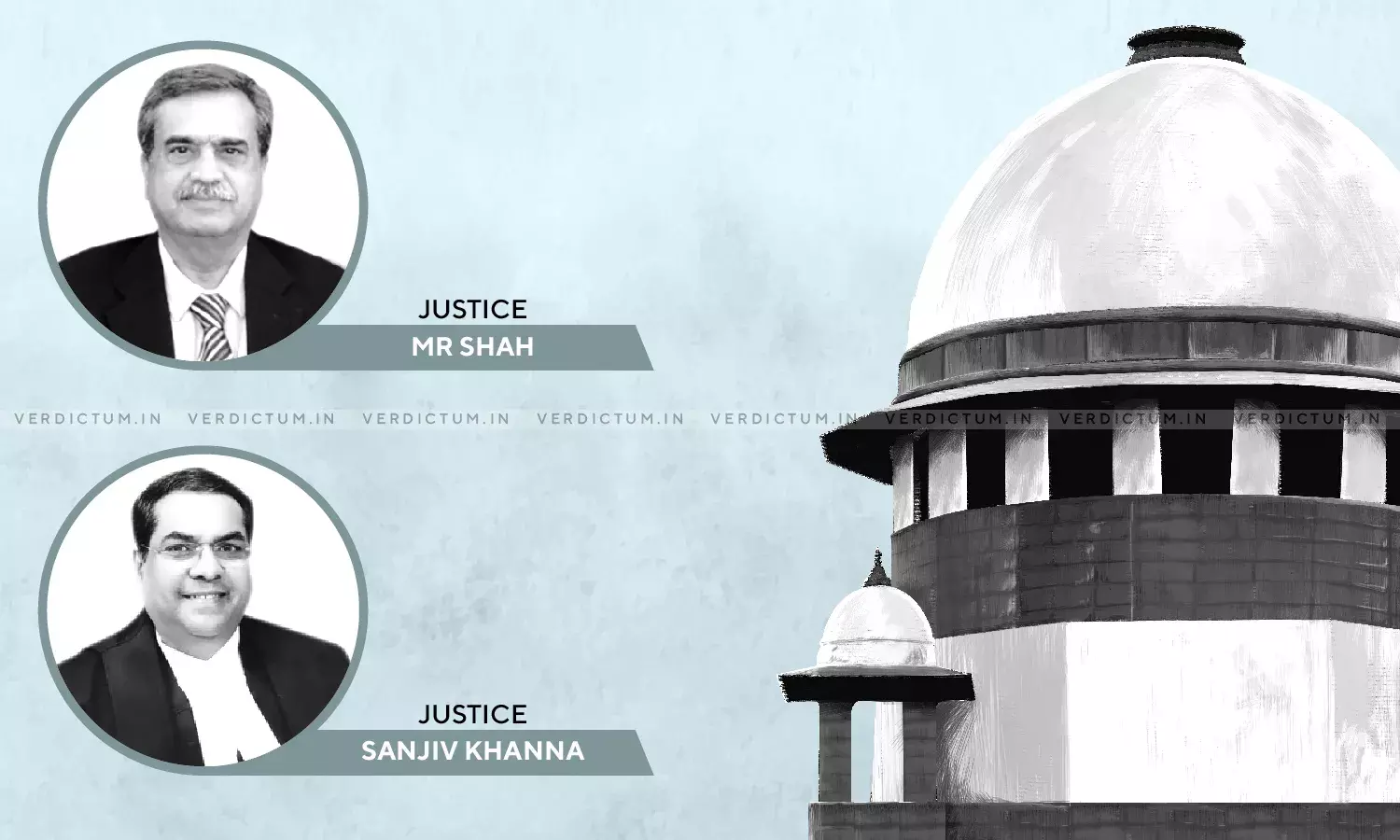No Independent Suit Would Be Maintainable Against Compromise Decree Under Order XXIII Rule 3A CPC: SC

A two-judge bench of Justice M.R. Shah and Justice Sanjiv Khanna has observed that as per Order XXIII Rule 3A CPC, no suit could set aside a decree on the ground that the compromise on which the decree was based was not lawful.
Moreover, the Court asserted that mere clever drafting would not permit Plaintiff to make the suit maintainable which otherwise would not be maintainable and/or barred by law.
In this case, the suit schedule property was gifted to Respondent No.1 herein – Original Plaintiff during his minority by his paternal grandmother. The said Gift Settlement Deed was revoked and thereafter a registered Development Agreement-cum-General Power of Attorney was executed between the grandmother of the Plaintiff and the Appellant – M/s. Sree Surya Developers and Promoters. On attaining the age of majority, Respondent No.1 herein filed the present suit for inter alia declaration of right, title, and interest over the suit schedule property and declaration of Compromise Decree. He also prayed that the revocation of the deed was null and void.
The Trial Court rejected the plaint on the ground that in view of Order XIII Rule 3A CPC, no independent suit would be maintainable against the Compromise Decree. Whereas the Telangana High Court allowed the said appeal and quashed the impugned order. The present appeals had been preferred by the Appellant i.e. M/s. Sree Surya Developers and Promoters before the Supreme Court.
Senior Advocate, Shri Mukul Rohatgi, appeared on behalf of the Appellant while Senior Advocate Shri B. Adinarayana Rao represented the Original plaintiff i.e. Respondent No.1 before the Apex Court.
The primary issue in this case was –
- Whether the Trial Court had rightly rejected the plaint in the exercise of powers under Order VII Rule 11 CPC on the ground that an independent suit challenging the Compromise Decree would be barred in view of Order XXIII Rule 3A CPC.
It was contended by the Appellant that Order XXIII Rule 3 CPC provided for compromise of suit and that by way of amendment, Rule 3A had been inserted, which specifically provided that no suit shall lie to set aside a decree on the ground that the compromise on which the decree was based was not lawful. It was argued that therefore the present suit filed by Respondent No.1 herein – original plaintiff challenging the Compromise Decree would be barred under Order XXIII Rule 3A CPC and therefore the Trial Court had rightly rejected the plaint. Thus, no independent suit would be maintainable against the Compromise Decree.
On the other hand, the Original Plaintiff contended that the Compromise Decree was hit by Order XXXII Rule 7 CPC. It was submitted that therefore on attaining the majority immediately when a suit for various reliefs was institute which otherwise could be granted in a substantive independent suit, the High Court had rightly set aside the order passed by the Trial Court rejecting the plaint.
The Court observed that as per Order XXIII Rule 3A CPC, no suit could set aside a decree on the ground that the compromise on which the decree was based was not lawful. Moreover, an identical question was considered by this Court in the case of R. Janakiammal v. S.K. Kumarasamy where it was observed and held by this Court that Rule 3A of Order XXIII barred the suit to set aside the decree on the ground that the compromise on which decree was passed was not lawful. It was further held that an agreement or compromise which was clearly void or voidable should not be deemed to be lawful and the bar under Rule 3A should be attracted if a compromise on the basis of which the decree was passed was void or voidable.
Additionally, the Court opined that a party to a consent decree based on a compromise to challenge the compromise decree on the ground that the decree was not lawful i.e., it was void or voidable, had to approach the same court, which recorded the compromise and a separate suit challenging the consent decree would not be maintainable. Thus, the Supreme Court held that the Trial Court was absolutely justified in rejecting the plaint on the ground that the suit for the reliefs sought challenging the Compromise Decree would not be maintainable.
The Court further relied on T. Arivandandam Vs. T.V. Satyapa and observed, "A mere clever drafting would not permit the plaintiff to make the suit maintainable which otherwise would not be maintainable and/or barred by law. It has been consistently held by this Court that if clever drafting of the plaint has created the illusion of a cause of action, the court will nip it in the bud at the earliest so that bogus litigation will end at the earlier stage."
Thus, the impugned judgment and order passed by the Telangana High Court was quashed and set aside while the order passed by the Trial Court rejecting the plaint was hereby restored.
Click here to read/download the Judgment

